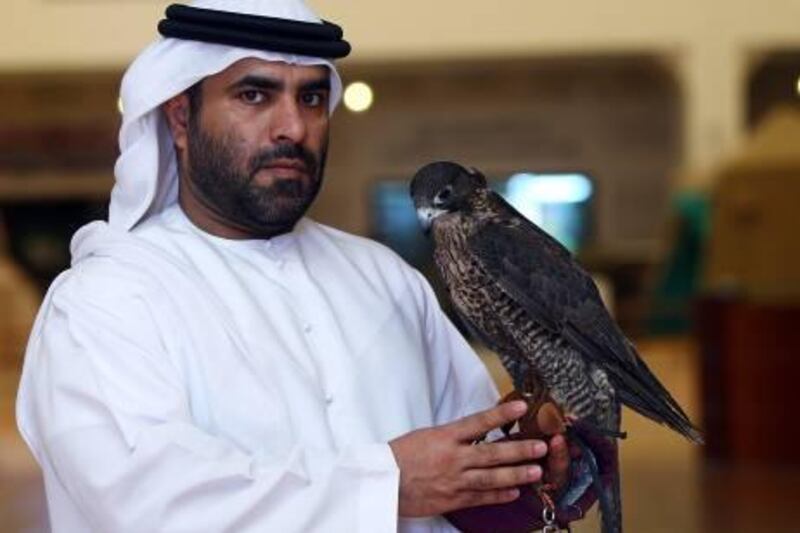DUBAI // Falcons have been an indispensable hunting tool for Bedouin for hundreds of years. More than that, they have often come to be regarded as a family member.
And the necessity of survival in the desert meant a strong bond of trust was forged between the falconer and his bird.
Special report: The Desert Survival Guide
The desert is a tough place to live. For generations, people survived through the UAE's sweltering summers by managing to eke out limited and hidden food, water and shelter. Our reporters look at how they managed it, what they ate – and how those secrets of survival still affect the lives of ordinary Emiratis today.
[ More from The National on desert survival ]
"They played an important role in helping families to survive in the desert," said Margit Mueller, the director of the Falcon Hospital in Abu Dhabi. "For that reason, they were integrated into the family. They were not merely a tool, they became regarded as a family member, even as a child."
At the age of six, Rashid Hamad Al Suwidi's father gave him a falcon. He named it Thalam (Dark), and on most days father and son would use the bird for hunting rabbits on the edge of Dubai.
"We treated the falcon as a member of the family," said Mr Al Suwidi, now 40 and a trainer at Dubai Falcon Hospital. "Back then we were hunting for food, now we hunt for fun. But the relationship is still the same."
Until the 1950s, when the buying and selling of falcons became widespread, the relationship between a falconer and his bird was a transient one, according to Dr Sulayman Khalaf, an expert in intangible heritage at the Abu Dhabi Authority for Culture and Heritage.
Birds were trapped as they migrated during the winter months from Iran and the Caspian Sea area to warmer climes in Africa. In the summer months they were set free as families could often not afford to continue to feed them and the humidity made it dangerous for the bird to fly.
A newly captured bird faced a period of taming of up to four weeks. The birds were constantly perched on the master's arm, gradually growing used to his voice and becoming dependent on him for food.
"You can't use command or force, you have to train him and woo him and he would recognise your voice," said Dr Khalaf. "Once the bond is established, when you let the bird go to hunt for you, he would come back."
Falcons' prey varies from hares to gazelles and the houbara bustard. If a bird made two or three kills in one hunt, it was an immense source of pride, said Dr Khalaf.
"It was like your horse winning in a race."






